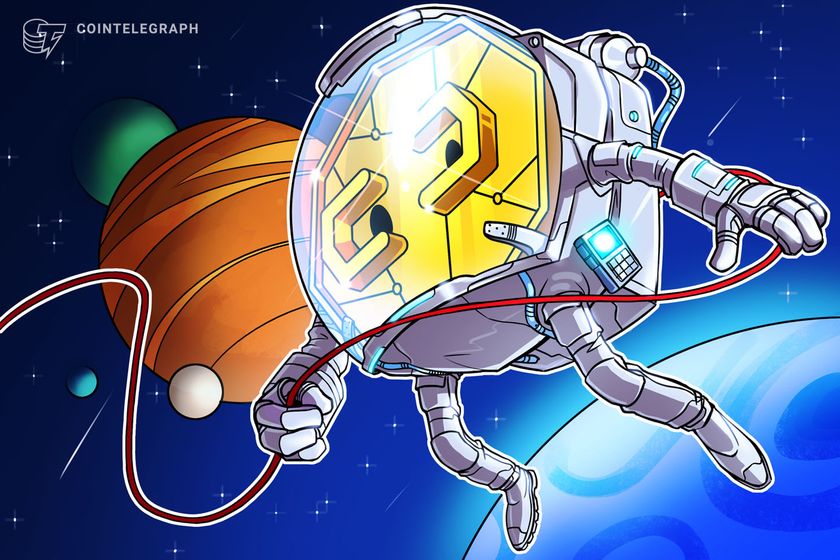
During an episode of The Joe Rogan Experience, Altman expressed his excitement for Bitcoin and also said he was “super against” CBDCs.
OpenAI CEO Sam Altman has called Bitcoin (BTC) a "super logical" step on the tech tree, which is both free of government control while helping to fight corruption.
"I’m excited about Bitcoin,” Altman told Joe Rogan during an Oct. 6 episode of The Joe Rogan Experience podcast.
“I think this idea that we have a global currency that is outside of the control of any government is a super logical and important step on the tech tree."
The OpenAI boss' wide-ranging interview with Rogan covered his thoughts on Bitcoin as a world reserve currency and his concerns about central bank digital currencies (CBDCs).
Altman, who also serves as founder of Worldcoin, said the shift to a “technologically enabled world,” including Bitcoin, could help reduce corruption.
Creator of ChatGPT, Sam Altman says, “#Bitcoin is a super logical and important step on the technology tree” of humanity. pic.twitter.com/2DGDzxIRrm
— Documenting ₿itcoin (@DocumentingBTC) October 7, 2023
“One of the things that I've observed, obviously many other people too, is corruption is such an incredible hindrance to getting anything done in a society to make it forward progress,” said Altman.
“But in a world where payments, for example, are no longer like bags of cash but done somehow digitally and somebody, even if you're using Bitcoin, can like watch those flows," he said, adding:
“I think that's like a corruption reducing thing."
Meanwhile, Rogan expressed his own optimism for Bitcoin despite skepticism of the wider cryptocurrency industry, saying he believes it can become a “universal viable currency.”
“The real fascinating crypto is Bitcoin. To me, that's the one that I think has the most likely possibility of becoming a universal viable currency. It's limited in the amount that there can be [and] people mine it with their own [computer].”
“That to me is very fascinating. I love the fact that it's been implemented,” Rogan added.
I disagree with Joe Rogan here. #Bitcoin won’t become a “universal, viable currency”.
— Dennis Porter (@Dennis_Porter_) October 7, 2023
It already is universal, viable currency being used by millions of people globally.
pic.twitter.com/RpMIHrQMUg
Altman, however, has been a long supporter of Bitcoin well before the podcast. In a blog post dated 10 years ago, Altman argued that a world transacting in Bitcoin would be more transparent.
“A world where we all transact in Bitcoin would be much more transparent, and financial transparency is great. It’s perhaps the thing that would most reduce corruption,” Altman said.
Rogan, Altman ‘very worried’ about CBDCs, slams U.S. war on crypto
Meanwhile, both Altman and Rogan said they were “super against” CBDCs and expressed worry about the United States becoming a surveillance state.
Rogan argued that CBDCs could give governments even more control over how people spend their money:
“I'm very worried about central bank digital currency and that being tied to a social credit score. That scares the shit out of me. The push to that is not for the overall good of society, that's for control.”
Related: CBDC frameworks must guard user privacy, monetary freedom — BIS chief
Altman added he hasn’t been impressed with how the U.S. government has treated the cryptocurrency industry recently:
“There's many things that I’m disappointed that the U.S. government has done recently, but the war on crypto, which I think is a like, we can’t give this up, like we’re going to control this and all that. That's the thing that makes me quite sad about the country,” he said.
Magazine: Asia Express: China expands CBDC’s tentacles, Malaysia is HK’s new crypto rival















